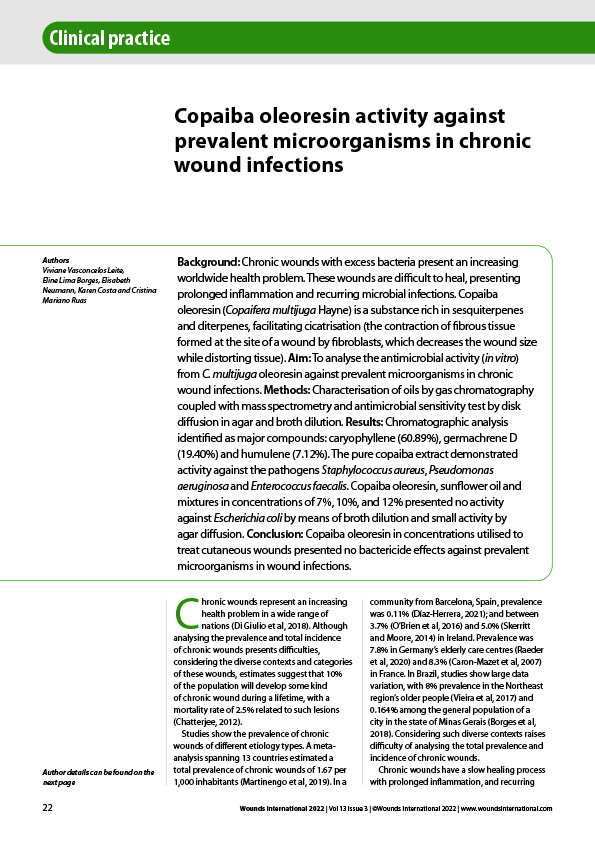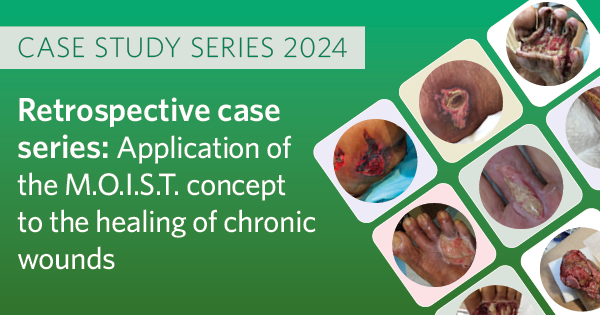Background: Chronic wounds with excess bacteria present an increasing worldwide health problem. These wounds are difficult to heal, presenting prolonged inflammation and recurring microbial infections. Copaiba oleoresin (Copaifera multijuga Hayne) is a substance rich in sesquiterpenes and diterpenes, facilitating cicatrisation (the contraction of fibrous tissue formed at the site of a wound by fibroblasts, which decreases the wound size while distorting tissue). Aim: To analyse the antimicrobial activity (in vitro) from C. multijuga oleoresin against prevalent microorganisms in chronic wound infections. Methods: Characterisation of oils by gas chromatography coupled with mass spectrometry and antimicrobial sensitivity test by disk diffusion in agar and broth dilution. Results: Chromatographic analysis identified as major compounds: caryophyllene (60.89%), germachrene D (19.40%) and humulene (7.12%). The pure copaiba extract demonstrated activity against the pathogens Staphylococcus aureus, Pseudomonas aeruginosa and Enterococcus faecalis. Copaiba oleoresin, sunflower oil and mixtures in concentrations of 7%, 10%, and 12% presented no activity against Escherichia coli by means of broth dilution and small activity by agar diffusion. Conclusion: Copaiba oleoresin in concentrations utilised to treat cutaneous wounds presented no bactericide effects against prevalent microorganisms in wound infections.





